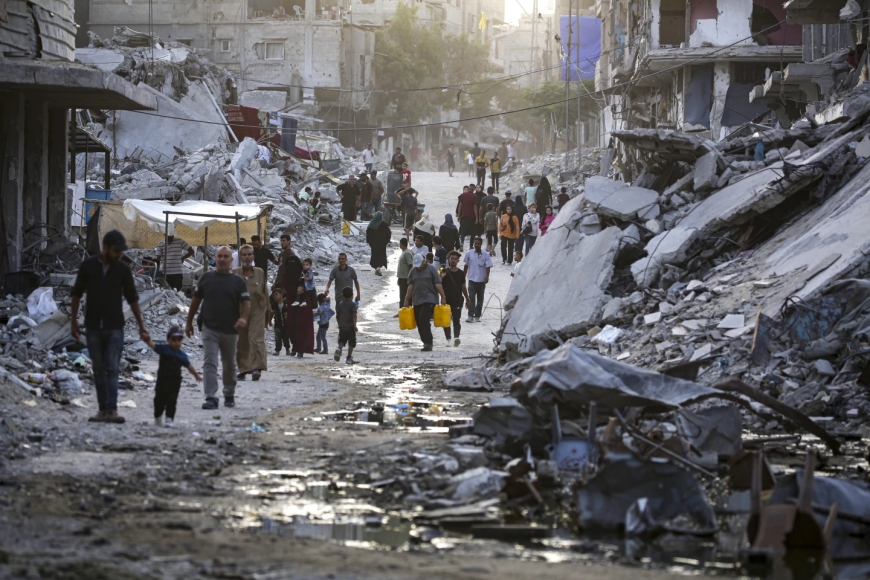Aid groups in Gaza aim to avert a polio outbreak with a surge of vaccinations
The threat of polio is rising fast in the Gaza Strip, prompting aid groups to call for an urgent pause in the war so they can ramp up vaccinations and head off a full-blown outbreak. One case has been confirmed, others are suspected and the virus was detected in wastewater in six different locations in July.

The threat of polio is rising fast in the Gaza Strip, prompting aid groups to call for an urgent pause in the war so they can ramp up vaccinations and head off a full-blown outbreak. One case has been confirmed, others are suspected and the virus was detected in wastewater in six different locations in July.
Polio was eradicated in Gaza 25 years ago, but vaccinations plunged after the war began 10 months ago and the territory has become a breeding ground for the virus, aid groups say. Hundreds of thousands of displaced Palestinians are crowded into tent camps lacking clean water or proper disposal of sewage and garbage.
To avert a widespread outbreak, aid groups are preparing to vaccinate more than 600,000 children in the coming weeks. They say the ambitious vaccination plans are impossible, though, without a pause in the fighting between Israel and Hamas.
The World Health Organization and UNICEF, the United Nations children’s agency, said in a joint statement Friday that, at a minimum, a seven-day pause is needed to carry out a mass vaccination plan.
The U.N. aims to bring 1.6 million doses of polio vaccine into Gaza, where sanitation and water systems have been destroyed, leaving open pits of human waste in crowded tent camps. Families living in the camps have little clean water or even soap to maintain hygiene and sometimes use wastewater to drink or clean clothes and dishes.
At least 225 informal waste disposal sites and landfills have cropped up around Gaza — many close to where families are sheltering, according to a report released in July by PAX, a Netherlands-based nonprofit that used satellite imagery to track the sites.













































